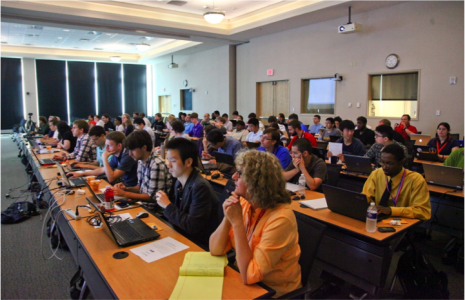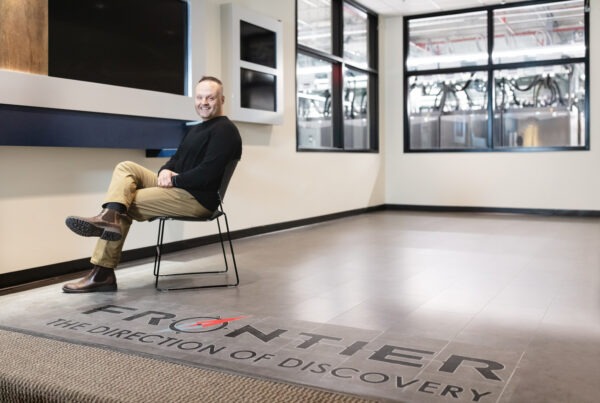Annual workshop teaches parallel programming concepts
“Crash” usually means a catastrophic event, but the Oak Ridge Leadership Computing Facility (OLCF) offered summer students, interns, and staff members a positive experience in “Crash Course in Supercomputing,” a workshop held on the Oak Ridge National Laboratory (ORNL) campus June 12 and 13. Approximately 90 attendees listened to lectures covering basic high-performance computing (HPC) concepts and completed hands-on exercises.
“The purpose of the workshop is to introduce summer interns and non-technical staff—with no experience in HPC—to a basic overview of tools and techniques used in parallel processing,” said workshop coordinator Robert Whitten.
OLCF staff member Mitch Griffith covered the fundamentals of the UNIX computer operating system and use of vi, a text-editing program. His colleague, Arnold Tharrington, next taught about parallelization, introducing MPI [Message Passing Interface] and OpenMP, two parallel-programming libraries. Students then programmed, compiled, ran, and debugged their code on Smoky, an 80-node Linux cluster normally reserved for application development.
Johannes Bachhuber, a computer science student at the University of Liverpool, called the crash course ”a fantastic experience.” He is completing a summer internship with Jacob Barhen and Yehuda Braiman at ORNL’s Center for Engineering Science Advanced Research. “It definitely made me understand supercomputing principles better,” Bachhuber said. “I think it is amazing that ORNL offers this course to students, and I’m glad I decided to take it.”
The OLCF, along with the University of Tennessee’s National Institute for Computational Sciences, is offering a second summer class, HPC Fundamentals, beginning June 27 on the ORNL campus. This is an eight-week course designed for student researchers, interns, and staff with no prior experience in HPC topics. —by Sandra Allen McLean






